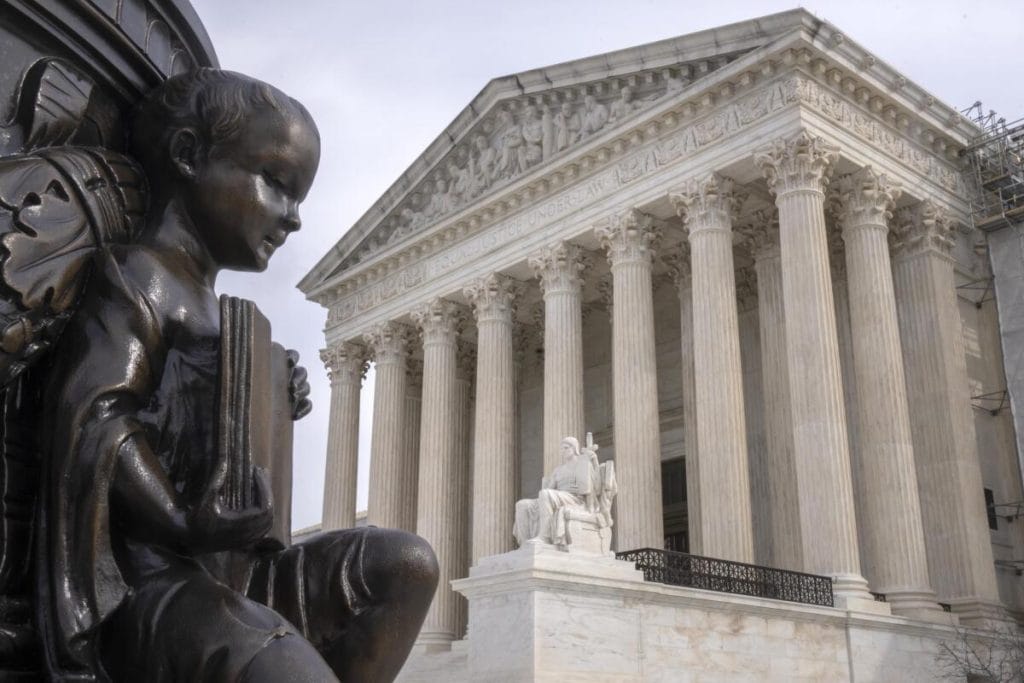US Supreme Court Asked to Halt California’s Corporate Climate Disclosure Laws

• Business groups petition the Supreme Court to pause California’s emissions and climate-risk disclosure mandates as lawsuits advance.
• Two laws could require more than 6,000 companies operating in the state to report greenhouse gas emissions and financial exposure to climate impacts.
• The outcome could influence national climate-risk reporting efforts, including the SEC’s stalled disclosure rule.
California’s two sweeping corporate climate-disclosure laws are now before the US Supreme Court, after the Chamber of Commerce and several major companies asked the justices to block the measures while legal challenges continue. The petition places one of the most ambitious state-level transparency regimes directly in front of a Court that has recently narrowed federal environmental powers.
The laws, signed by Governor Gavin Newsom in 2023, create a first-of-its-kind requirement for large companies operating in California to publicly report greenhouse gas emissions across their value chains and disclose how climate change may affect their financial health. Lower courts have so far allowed the rules to proceed, and the first reporting obligations are scheduled to begin in early 2026.
One measure applies to companies generating more than $1 billion in annual revenue and operating in the state. Those firms would be required to annually report direct emissions beginning in 2026 and indirect emissions in 2027. The statute covers emissions from fuel combustion and broader value-chain activities, including logistics, product delivery, and employee travel. The Chamber of Commerce estimates that roughly 5,000 businesses will be subject to the rule, though the California Air Resources Board (CARB) places the number closer to 2,600.
The second measure targets companies earning more than $500 million a year, requiring biennial disclosures on how climate change could pose material financial risks. CARB expects more than 4,100 companies to fall under this mandate. Both laws include civil penalties for non-compliance.
In their petition, the Chamber and its co-plaintiffs argue that the laws compel speech in violation of the First Amendment and risk distorting public debate. They warn of irreparable harm if requirements take effect while litigation is unresolved. ExxonMobil has separately filed suit challenging the measures.
RELATED ARTICLE: Benchmark Supports the SEC Proposed Corporate Climate Risk Disclosure Rule
California maintains that the mandates fall within the state’s authority to regulate commercial disclosures. State lawyers argue that commercial speech does not receive the same constitutional protections as political expression and that the measures serve legitimate policy aims. Newsom has framed the emissions-reporting law as a necessary tool for turning transparency into climate action, while environmental organisations such as Ceres say the disclosures will provide investors and consumers with crucial decision-making information.
The national regulatory backdrop adds another dimension. The US Securities and Exchange Commission finalised a climate-risk disclosure rule last year, but implementation has been paused as federal courts weigh legal challenges. If California’s rules survive judicial scrutiny, they could create a de facto national standard for emissions and risk transparency, given the number of global companies with significant operations in the state.
The Supreme Court’s recent environmental jurisprudence introduces notable uncertainty. In 2022, the Court curtailed the Environmental Protection Agency’s authority to regulate power-plant emissions, emphasising limits on federal agencies’ ability to interpret broad statutory mandates. More recently, the Court suspended the EPA’s “good neighbor” rule, weakening a central component of national air-pollution controls.
Those rulings suggest the justices may continue to apply a restrictive view of regulatory authority, raising questions about how they will approach state-level climate transparency regimes. A decision to freeze or narrow California’s laws could stall other state efforts and complicate investor-driven pushes for comparable climate reporting. Conversely, allowing the measures to proceed would reinforce the role of states in shaping US climate governance at a time when federal action remains contested.
The Court has not yet indicated when it will decide whether to grant the Chamber of Commerce’s request for a temporary hold. The outcome will shape both the trajectory of California’s climate policy and the wider landscape for corporate environmental disclosure across the United States.
Follow ESG News on LinkedIn












